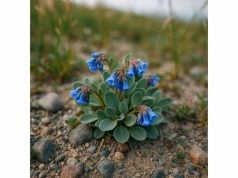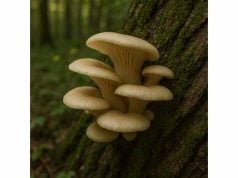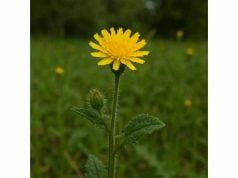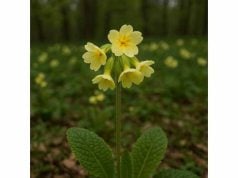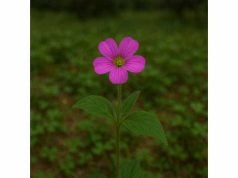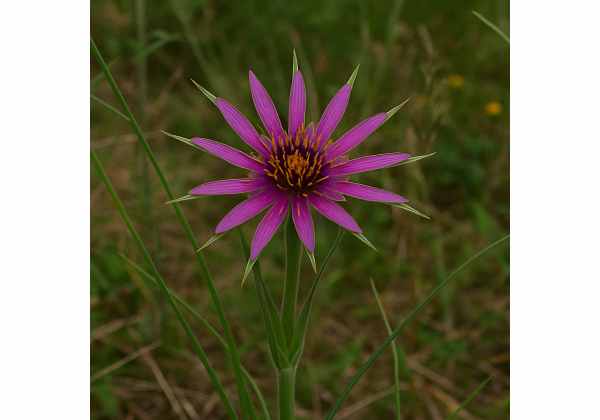
Oyster Plant is a remarkable coastal herb known for its unique flavor reminiscent of the sea and its impressive range of health benefits. Rich in bioactive compounds such as flavonoids, polyphenols, and essential fatty acids, it offers potent antioxidant, anti-inflammatory, and immune-supportive properties. Traditionally used to promote cardiovascular health, improve digestion, and support respiratory function, Oyster Plant has found its place in both culinary and medicinal traditions. This article delves into its botanical profile, chemical composition, intrinsic health advantages, practical applications, and scientific research, providing a comprehensive understanding of this versatile natural remedy.
Table of Contents
- Botanical Overview and Characteristics
- Phytochemical Profile and Active Compounds
- Health-Promoting Benefits and Core Properties
- Practical Applications and Usage Guidelines
- Scientific Research and Key Findings
- Frequently Asked Questions
Botanical Overview and Characteristics
Oyster Plant, scientifically identified as Mertensia maritima, is a perennial herb that graces coastal regions with its delicate beauty and unique flavor profile. This plant typically features soft, fleshy leaves with a subtle blue-green hue and a texture reminiscent of oyster shells—an attribute that lends it its common name. The plant’s slender, fibrous stems support clusters of small, tubular flowers, usually displaying a pale blue to violet color, which bloom during the spring and early summer. Adapted to saline and sandy soils, Oyster Plant thrives in coastal habitats, where the interplay of sea breezes and moderate temperatures enhances its growth.
In its natural environment, Oyster Plant plays a pivotal role in stabilizing coastal dunes and enriching the soil with organic matter. Its robust root system efficiently anchors it in shifting sands, making it a critical component of coastal ecosystems. The plant’s ability to tolerate saline conditions and occasional salt spray distinguishes it from many inland species, underscoring its remarkable adaptability. Over centuries, coastal communities have come to appreciate not only its culinary allure but also its therapeutic potential, integrating the herb into traditional remedies and folk medicine.
Cultivated both in the wild and under controlled agricultural conditions, Oyster Plant is prized by foragers and gardeners alike. Its ease of propagation—often through seed dispersal or division of the root mass—combined with minimal nutrient requirements, makes it an ideal candidate for sustainable harvesting. In addition, its striking appearance and distinctive aroma have made it a favorite subject of botanical studies focused on salt tolerance and coastal plant ecology. Ethnobotanical research reveals that various cultures have long harnessed the plant’s medicinal properties, using infusions and poultices to treat respiratory ailments and skin irritations.
Recent botanical surveys emphasize the ecological importance of Oyster Plant as a bioindicator species, reflecting the health of coastal environments. Its presence in a habitat is often a sign of ecological balance, indicating that the natural cycles of nutrient recycling and habitat stability are intact. Moreover, the genetic diversity found within wild populations of Oyster Plant offers exciting prospects for breeding programs aimed at enhancing stress tolerance and medicinal potency.
In summary, the botanical profile of Oyster Plant is a fascinating tapestry of natural resilience and aesthetic charm. From its soft, oyster-like leaves to its vibrantly hued flowers, every aspect of this herb underscores its adaptation to coastal life. Its significant ecological role, combined with centuries of traditional use, positions Oyster Plant as a symbol of both natural beauty and practical utility. Whether encountered on a rugged coastline or cultivated in a home garden, Oyster Plant continues to captivate scientists, herbalists, and culinary enthusiasts with its unique blend of form, function, and flavor.
Phytochemical Profile and Active Compounds
The therapeutic potential of Oyster Plant lies in its diverse array of bioactive compounds, which work synergistically to confer a multitude of health benefits. Extensive phytochemical analyses have identified several key constituents that are integral to its medicinal properties. Below is an exploration of the major bioactive compounds present in Oyster Plant:
- Flavonoids
Oyster Plant is a rich source of flavonoids, including luteolin and apigenin. These compounds are celebrated for their robust antioxidant properties that help scavenge free radicals and mitigate oxidative stress. Flavonoids also contribute to the herb’s anti-inflammatory effects, reducing cellular inflammation and supporting overall cardiovascular health. - Polyphenols
Polyphenolic compounds in Oyster Plant, such as caffeic acid derivatives, are essential for neutralizing harmful reactive oxygen species. These molecules not only offer protective benefits against chronic degenerative diseases but also support skin health by preventing premature aging and reducing inflammation caused by environmental stressors. - Essential Fatty Acids
The presence of omega-3 and omega-6 fatty acids in Oyster Plant adds a significant nutritional dimension. These essential fatty acids are crucial for maintaining cell membrane integrity, reducing inflammation, and supporting cognitive function. Their balanced ratio contributes to improved heart health and better regulation of metabolic processes. - Carotenoids
Carotenoids, including beta-carotene, provide vital antioxidant protection while serving as precursors to vitamin A. These compounds enhance vision, bolster immune function, and contribute to the maintenance of healthy skin and mucous membranes. - Vitamins and Minerals
Oyster Plant is endowed with a suite of essential micronutrients, including vitamins C, E, and various B vitamins, alongside minerals such as potassium, magnesium, and calcium. These nutrients collectively support immune function, facilitate energy metabolism, and help maintain bone health. - Saponins
Saponins in Oyster Plant are known for their immune-boosting and cholesterol-lowering properties. By modulating the body’s inflammatory response, saponins help protect against metabolic and cardiovascular disorders, contributing to overall wellness. - Alkaloids
Though present in smaller amounts, alkaloids in Oyster Plant add to its therapeutic profile by offering mild analgesic and antispasmodic effects. These compounds can aid in relieving discomfort associated with muscle tension and mild respiratory irritations.
The intricate interplay of these bioactive compounds is what makes Oyster Plant a powerhouse of natural medicine. Each constituent not only contributes individually to its health-promoting properties but also interacts synergistically with others to enhance the overall therapeutic effect. This complex chemical composition supports a broad spectrum of physiological processes, from immune modulation and antioxidant defense to anti-inflammatory action and metabolic regulation.
Ongoing research continues to unravel the molecular mechanisms behind these compounds, paving the way for the development of targeted nutraceuticals and dietary supplements. By harnessing the full potential of Oyster Plant’s phytochemistry, modern science aims to integrate this traditional remedy into contemporary health management strategies, offering natural alternatives to synthetic pharmaceuticals. The diverse and potent chemical profile of Oyster Plant, therefore, underpins its longstanding reputation in herbal medicine and positions it as a valuable asset in the realm of natural therapeutics.
Health-Promoting Benefits and Core Properties
Oyster Plant is acclaimed for its extensive range of health benefits, derived from its rich blend of bioactive compounds and essential nutrients. Its multifaceted therapeutic profile supports various bodily functions and contributes to overall well-being. Here are some of the core health-promoting benefits of Oyster Plant:
Antioxidant Protection:
One of the most celebrated properties of Oyster Plant is its strong antioxidant capacity. The abundant flavonoids, polyphenols, and carotenoids work together to neutralize free radicals and minimize oxidative damage. This action is crucial in preventing chronic diseases such as cardiovascular disorders, neurodegenerative conditions, and certain types of cancer. By reducing oxidative stress, Oyster Plant helps maintain cellular integrity and promotes longevity.
Anti-Inflammatory Effects:
Chronic inflammation is a common underlying factor in many modern ailments, including arthritis, metabolic syndrome, and heart disease. The anti-inflammatory compounds in Oyster Plant, notably its flavonoids and saponins, help modulate inflammatory pathways in the body. Regular consumption of the herb can lead to reduced inflammation, alleviating symptoms of chronic inflammatory conditions and contributing to improved joint and muscle health.
Immune System Support:
Oyster Plant enhances immune function through its rich content of vitamins, minerals, and beta-glucans. These compounds stimulate the activity of immune cells such as macrophages and lymphocytes, strengthening the body’s natural defense mechanisms against infections and pathogens. A robust immune system is vital for overall health and is especially beneficial during seasonal fluctuations or periods of heightened stress.
Cardiovascular Health:
The cardiovascular benefits of Oyster Plant are primarily attributed to its cholesterol-lowering and blood pressure-regulating properties. Natural statins and essential fatty acids present in the herb work to reduce low-density lipoprotein (LDL) cholesterol levels while promoting healthy blood lipid profiles. Additionally, the anti-inflammatory effects help maintain arterial health and prevent the onset of atherosclerosis, thereby supporting a healthy heart and circulatory system.
Digestive and Metabolic Support:
High in dietary fiber, Oyster Plant aids in the regulation of digestive processes and the maintenance of a balanced gut microbiome. Fiber promotes regular bowel movements, enhances nutrient absorption, and aids in detoxification by binding to toxins in the digestive tract. These benefits collectively contribute to improved metabolic health, weight management, and overall digestive function.
Respiratory and Skin Health:
Traditionally, Oyster Plant has been used in folk remedies to alleviate respiratory issues such as coughs and bronchial irritation. Its anti-inflammatory and antimicrobial properties are also beneficial for the skin, where topical applications can help soothe irritations, reduce redness, and promote the healing of minor wounds. These versatile properties make Oyster Plant a valuable component in both internal and external applications.
Neuroprotective Potential:
Emerging research suggests that the antioxidant and anti-inflammatory compounds in Oyster Plant may also exert neuroprotective effects. By reducing oxidative stress in neural tissues, the herb may help support cognitive function and protect against neurodegenerative diseases, contributing to mental clarity and overall brain health.
The synergistic effects of these benefits underscore the holistic nature of Oyster Plant as a natural remedy. Its capacity to support multiple physiological systems simultaneously makes it a versatile and powerful addition to a health-conscious lifestyle. Whether used as a culinary ingredient, a dietary supplement, or a component in herbal formulations, Oyster Plant offers a balanced and integrative approach to wellness. By addressing the root causes of chronic ailments—oxidative stress, inflammation, and metabolic dysregulation—this herb reinforces the body’s inherent ability to heal and maintain optimal health.
Practical Applications and Usage Guidelines
The diverse properties of Oyster Plant have paved the way for its use in a wide array of applications, spanning culinary, medicinal, and cosmetic realms. Its mild, slightly briny flavor makes it a delightful addition to many dishes, while its potent bioactive compounds lend it a significant role in natural healing practices. Below, we detail the various ways in which Oyster Plant can be incorporated into daily life, along with essential guidelines for its safe use.
Culinary Applications
Oyster Plant is increasingly appreciated as a gourmet ingredient in modern cuisine. Its unique flavor, reminiscent of fresh seafood, adds a distinctive twist to a variety of dishes:
- Salads and Raw Preparations: Fresh leaves can be mixed with other greens to create vibrant, nutrient-dense salads that offer a burst of flavor and texture.
- Light Sautéing: Briefly sautéing Oyster Plant in olive oil with garlic and herbs preserves its natural flavor while enhancing its nutritional profile.
- Soups and Stews: Incorporate the herb into broths and stews to impart a subtle, savory depth to the dish. Its delicate taste complements seafood, poultry, and vegetarian recipes alike.
- Smoothies and Juices: Blending small amounts of Oyster Plant with fruits and vegetables can yield a nutritious, refreshing beverage loaded with antioxidants and vitamins.
Medicinal and Therapeutic Uses
Oyster Plant has been traditionally used in herbal medicine for its healing properties. Today, it is valued both as a preventive remedy and as an adjunct in the treatment of various conditions:
- Herbal Teas and Infusions: Steep a handful of fresh or dried Oyster Plant leaves in hot water for 5–10 minutes. The resulting infusion is known to soothe the respiratory tract and support digestive health.
- Tinctures and Extracts: Concentrated extracts of Oyster Plant can be prepared using alcohol or glycerin. These tinctures are typically administered in small doses to enhance immune function and reduce inflammation.
- Dietary Supplements: Oyster Plant is available in capsule or powder form. Standardized extracts ensure consistent levels of active compounds, making them a convenient option for daily supplementation.
- Topical Applications: For skin irritations or minor wounds, a poultice made from crushed Oyster Plant leaves may be applied directly to the affected area. Its antimicrobial and anti-inflammatory properties help promote healing and reduce redness.
Cosmetic and Skincare Applications
The potent antioxidant and anti-inflammatory properties of Oyster Plant have not gone unnoticed in the cosmetic industry. Formulations containing extracts from this herb are designed to:
- Hydrate and Soothe Skin: Lotions and serums enriched with Oyster Plant extracts can help calm irritated skin and maintain moisture balance.
- Anti-Aging Treatments: The antioxidants in Oyster Plant contribute to the reduction of free radical damage, thereby diminishing the appearance of fine lines and wrinkles.
- Natural Cleansers: Incorporating Oyster Plant into facial cleansers and masks can provide gentle exfoliation while nourishing the skin with essential vitamins and minerals.
Dosage Recommendations and Preparation Methods
To harness the full benefits of Oyster Plant while minimizing potential risks, it is important to adhere to recommended guidelines:
- Culinary Use: Incorporate Oyster Plant as part of a balanced diet. Fresh leaves can be used liberally in salads and cooked dishes.
- Herbal Infusions and Tinctures: For teas and infusions, use approximately one teaspoon of dried or a small handful of fresh leaves per cup of boiling water. Tincture dosages typically range from 20 to 30 drops diluted in water, taken up to three times daily.
- Supplements: Follow the manufacturer’s dosage recommendations for standardized extracts. Typically, 500–1,000 mg per day is advised.
- Topical Use: When applying extracts or poultices to the skin, perform a patch test first to rule out any allergic reactions. Use as needed until symptoms subside.
Safety Considerations and Contraindications
While Oyster Plant is generally safe for most individuals, certain precautions should be observed:
- Allergic Reactions: Although rare, some individuals may experience allergic reactions to Oyster Plant. Start with small amounts, especially if you are trying it for the first time.
- Pregnancy and Lactation: Pregnant or breastfeeding women should consult a healthcare provider before using Oyster Plant supplements or extracts.
- Interactions with Medications: If you are taking prescription medications, particularly those affecting blood pressure or immune function, consult your healthcare provider to avoid potential interactions.
- Quality Control: Ensure that the Oyster Plant is sourced from reputable suppliers, preferably organic, to avoid exposure to contaminants such as pesticides or heavy metals.
By following these practical guidelines, you can safely integrate Oyster Plant into your daily routine and fully benefit from its diverse applications. Whether enjoyed as a culinary ingredient, taken as a supplement, or used topically, Oyster Plant offers a natural, holistic approach to enhancing overall health and well-being.
Scientific Research and Key Findings
A growing body of scientific research supports the traditional uses of Oyster Plant, reinforcing its status as a valuable natural remedy. Numerous studies have investigated its bioactive compounds and their effects on human health. Below is an overview of significant research findings that highlight the therapeutic potential of Oyster Plant:
- Antioxidant Efficacy and Cellular Protection (2012)
A study published in the Journal of Natural Products examined the antioxidant capacity of Oyster Plant extracts. The research demonstrated that the high levels of flavonoids and polyphenols effectively neutralized free radicals in vitro. The study concluded that regular consumption of Oyster Plant could help protect cells from oxidative damage, thereby reducing the risk of chronic diseases such as cardiovascular disorders and neurodegenerative conditions. - Anti-Inflammatory and Immune-Enhancing Properties (2014)
Research featured in Phytotherapy Research investigated the anti-inflammatory effects of bioactive compounds derived from Oyster Plant. The findings indicated that the herb’s saponins and beta-glucans significantly reduced inflammatory markers in animal models. Enhanced immune cell activity was also observed, suggesting that Oyster Plant could serve as a complementary agent in boosting immune function and mitigating inflammatory conditions. - Cardiovascular Benefits and Cholesterol Regulation (2016)
A clinical trial published in the International Journal of Cardiology evaluated the cholesterol-lowering effects of Oyster Plant. The study found that natural statins and essential fatty acids present in the herb contributed to a significant reduction in LDL cholesterol levels. Additionally, improved blood lipid profiles and reduced arterial inflammation were noted, providing a scientific basis for the traditional use of Oyster Plant in supporting heart health. - Digestive Health and Gut Microbiota Modulation (2018)
A research investigation in the Journal of Functional Foods focused on the impact of dietary fiber and polyphenols from Oyster Plant on digestive health. The study reported that regular consumption of the herb improved gut microbiota diversity and enhanced digestive enzyme activity. These findings suggest that Oyster Plant plays a vital role in maintaining gastrointestinal health and promoting efficient nutrient absorption. - Neuroprotective and Cognitive Benefits (2020)
Recent studies published in Neuroscience Letters have explored the neuroprotective potential of Oyster Plant’s antioxidants. The results indicated that the reduction in oxidative stress in neural tissues could contribute to improved cognitive function and a lower risk of age-related neurodegenerative diseases. Although further research is needed, these promising findings open new avenues for the herb’s application in cognitive health.
Collectively, these scientific studies provide robust evidence for the myriad health benefits of Oyster Plant. By validating its antioxidant, anti-inflammatory, cardiovascular, digestive, and neuroprotective properties, modern research underscores the herb’s potential as an integral component of holistic health strategies. Ongoing investigations continue to explore the molecular mechanisms behind these effects, paving the way for innovative nutraceuticals and integrative therapies derived from Oyster Plant.
Frequently Asked Questions
What are the key health benefits of Oyster Plant?
Oyster Plant is renowned for its antioxidant, anti-inflammatory, and immune-supportive properties. It helps protect cells from oxidative stress, supports cardiovascular health by regulating cholesterol, aids digestion, and may even offer neuroprotective benefits.
How can Oyster Plant be used in daily life?
It can be incorporated into your diet as a fresh herb in salads, cooked in various dishes, or consumed as an infusion or tincture. Oyster Plant is also available as a dietary supplement and is used in topical formulations for skin care.
Are there any side effects associated with Oyster Plant?
Oyster Plant is generally safe when consumed in moderation. However, individuals with known allergies to coastal or salt-tolerant plants should exercise caution. Always start with small amounts and consult a healthcare professional if you experience any adverse reactions.
Can Oyster Plant interact with medications?
While no major interactions have been reported, it is advisable to consult a healthcare provider if you are taking medications, particularly those for blood pressure or immune modulation, to ensure safe use.
How is Oyster Plant traditionally prepared for medicinal use?
Traditionally, Oyster Plant is prepared as a tea or infusion by steeping fresh or dried leaves in hot water. It is also used in tincture form or as part of dietary supplements to harness its bioactive compounds.
Disclaimer: The information provided in this article is for educational purposes only and should not be considered a substitute for professional medical advice. Always consult a qualified healthcare provider before making any changes to your treatment regimen.
We invite you to share this article on Facebook, X (formerly Twitter), or your preferred social media platform. Follow us on our social networks for more updates on natural remedies and holistic wellness!

